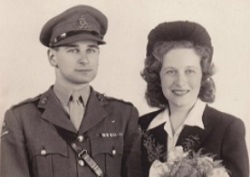
The University of Strathclyde has appointed two distinguished researchers to the prestigious positions of Judith and Harold Rosenberg Chairs in Quantum Technology.
The move follows a bequest of £500,000 from Scotland’s last Auschwitz survivor, the late Judith Rosenberg, to fund quantum technology research at Strathclyde.
Pioneering research
Professor Jonathan Pritchard, a world-renowned expert in quantum computing, is pioneering research with arrays of ultracold trapped atoms. His work aims to achieve computational tasks that surpass the capabilities of classical computers.
Professor Paul Griffin, an authority in quantum measurement and sensing, is advancing the development of ultraprecise atomic clocks using miniaturised atom traps, atom interferometers and precision magnetometers.
The endowment has not only established these esteemed Chairs at Strathclyde but also supports their research infrastructure, equipment, and staff and has created the Judith and Harold Rosenberg Quantum Research Laboratory.
New facilities
Additionally, the University of Strathclyde has bolstered its commitment to Quantum Technology with a £4 million investment in state-of-the-art laboratories dedicated to the Chairs’ research activities, alongside new teaching facilities.
Professor Sir Jim McDonald, Principal & Vice-Chancellor of the University of Strathclyde, said:
A good friend of Strathclyde, through her generous legacy gift, Judith Rosenberg is continuing to support world-leading research at the University.
“With these new appointments and the new quantum research laboratory in her and Harold’s name, we continue to honour their memories and advance our understanding and innovation in science and technology for the benefit of all.”
A long time supporter of Strathclyde, Mrs Rosenberg who died in January 2021 aged 98, had discussed with the University her vision for how her gift should be used for the advancement of science and technological research.
Professor Sir Jim McDonald met with Mrs Rosenberg on a number of occasions and gave her regular updates on Strathclyde’s progress and contributions to science and technology.
Legacy gifts play an important role in supporting students, research and the wider community at Strathclyde and build on the very first legacy gift in 1796 from the University’s founder, Professor John Anderson.
The University of Strathclyde has established a position as one of the leading international centres for Quantum Technology research and innovation, covering activities from fundamental and applied research through to technology development and industrialisation. Quantum Technologies is one of six key research clusters within Glasgow City Innovation District.
Judith Rosenberg

Judith Rosenberg was born in Gyor, Hungary on 3 September 1922 to Zsigmond and Irene Weinberger. She studied at Budapest University but returned home when antisemitic attacks on campus increased. Back in Gyor she became an apprentice to a watchmaker but in April 1944 was deported along with her family and other Hungarian Jews and taken to Auschwitz concentration camp, arriving in May.
There she was separated from her father whom she never saw again, but whose last words to her saved her life. He told her that if given a choice by her Nazi captors to always choose the hardest option as they would have ulterior motives.
She followed his advice and in September was selected to work in a munitions factory in Lippstadt where her knowledge of watchmaking and physics helped her gain extra rations which she shared with her mother and sister, thanks to mending German officers’ watches.
In April 1945 she was liberated, along with her mother and sister, by US soldiers and later became an interpreter for the British Army. It was in this capacity she met her future husband, Lieutenant Harold Rosenberg, a Scottish artillery officer from Glasgow.
They married in Warburg, Germany in 1946 and settled in Glasgow, enjoying almost 60 years of happy marriage until Harold passed away in 2005 on Yom Kippur, the holiest day of the Jewish calendar. She is survived by her only blood relative Erika Marosi – her sister Kati’s daughter – who lives in Hungary. Judith died on 22 January 2021 and is buried in the Jewish section of Glasgow’s Western Necropolis.
Find out more about how you can include Strathclyde in your Will and make the same positive difference for the next generation of Strathclyders.